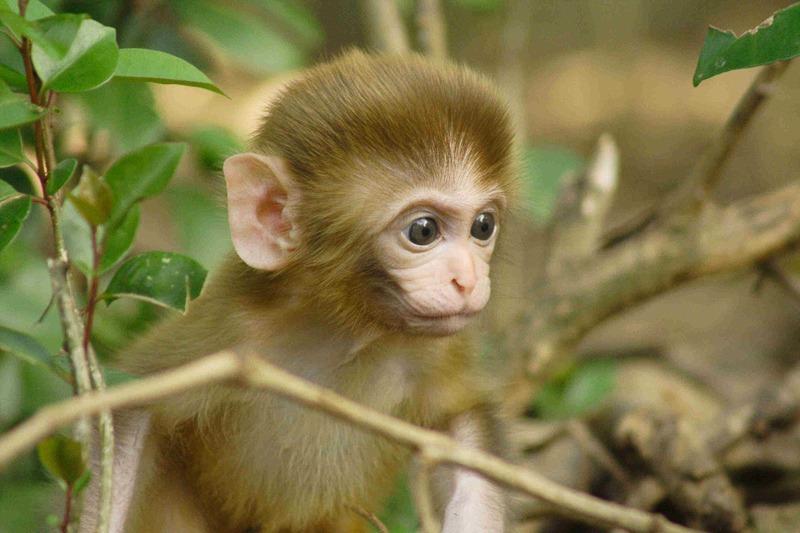 Baby rhesus macaque monkey. Photo: Lauren Brent.
Baby rhesus macaque monkey. Photo: Lauren Brent.
How You Can Explore Monkey Blood Characteristics to Help Researchers
Dr. Julie Horvath, Head, Genomics and Microbiology Research Lab, NCMNS; Research Associate Professor, NC Central University
Dr. Marianne Barrier, Lab Manager, Genomics and Microbiology Research Lab, NCMNS
Why is monkey blood relevant to you? Monkey Health Explorer is a citizen science project on Zooniverse.org that engages the public in identifying white blood cells in rhesus macaque monkeys that live on Cayo Santiago, a small island off the coast of Puerto Rico. Drs. Horvath and Barrier will teach you what different parts of a blood sample look like so that you can participate in this project. And, similarly to what happens when you have blood drawn at the doctor’s office, you will identify cells in a sample of blood. Counting the different types of blood cells is critical to helping us understand which monkeys are healthy or sick in the population we’re studying.
We compare the health data to behavioral data to help understand how the health of monkeys affects how they behave. This will provide us information useful to understanding similar processes in humans. In addition to discussing initial findings about the health of our monkeys, we’ll discuss what has worked well in engaging the public in this Zooniverse project and some of the trends in data collection.
Join us on YouTube!
Live Virtual Presentation hosted by NC Museum of Natural Sciences’ SECU Daily Planet Curator Chris Smith and the NC Department of Environmental Quality Office of Environmental Education and Public Affairs staff.
You can post questions in the YouTube chat or tweet questions to #LunchTimeDiscovery and mention @NorthCarolinaEE.
Brought to you by the NC DEQ Office of Environmental Education and Public Affairs and the NC Museum of Natural Sciences.


